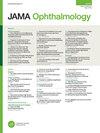Epidermal growth factor receptor inhibitors for treatment of orbital squamous cell carcinoma.
引用次数: 37
Abstract
Orbitalandperiorbitalsquamouscell carcinomas (SCCs) are treated with surgicalresectionastheprimarymodality and radiation therapy as adjuvant treatment in patients with perineural invasion or concerns for microscopically positive margins. For advanced cases, extensive surgerysuchasorbitalexenterationmay be needed to fully extirpate the tumor. Orbital exenteration leads to loss of the eye and significant facial disfigurement but has the potential to produce long-term cure. The extensive surgical treatments required for advanced cases of orbital and periorbital SCC entail long periods of general anesthesia and inpatient hospitalization; thus, in patientswithpoorperformancestatus, advanced age, or multiple medical comorbidities, surgery may not be the best option. Several epidermal growth factor receptor(EGFR)inhibitorshaverecently been developed and have shownefficacyintreatmentofnon– small cell lung cancer, pancreatic cancer, colon cancer, and mucosal head and neck squamous cell carcinomas. 1-3 We herein report 2 elderly patients with recurrent advancedorbitalSCCwhoweretreated withEGFRinhibitors—erlotinib,an oral tyrosine kinase inhibitor, and cetuximab,amonoclonalantibody– and had striking initial responses to this treatment. Report of Cases.Case 1. A 90-yearold woman with a history of SCC of the left lateral canthus that had表皮生长因子受体抑制剂治疗眼眶鳞状细胞癌。
本文章由计算机程序翻译,如有差异,请以英文原文为准。
求助全文
约1分钟内获得全文
求助全文

 求助内容:
求助内容: 应助结果提醒方式:
应助结果提醒方式:


